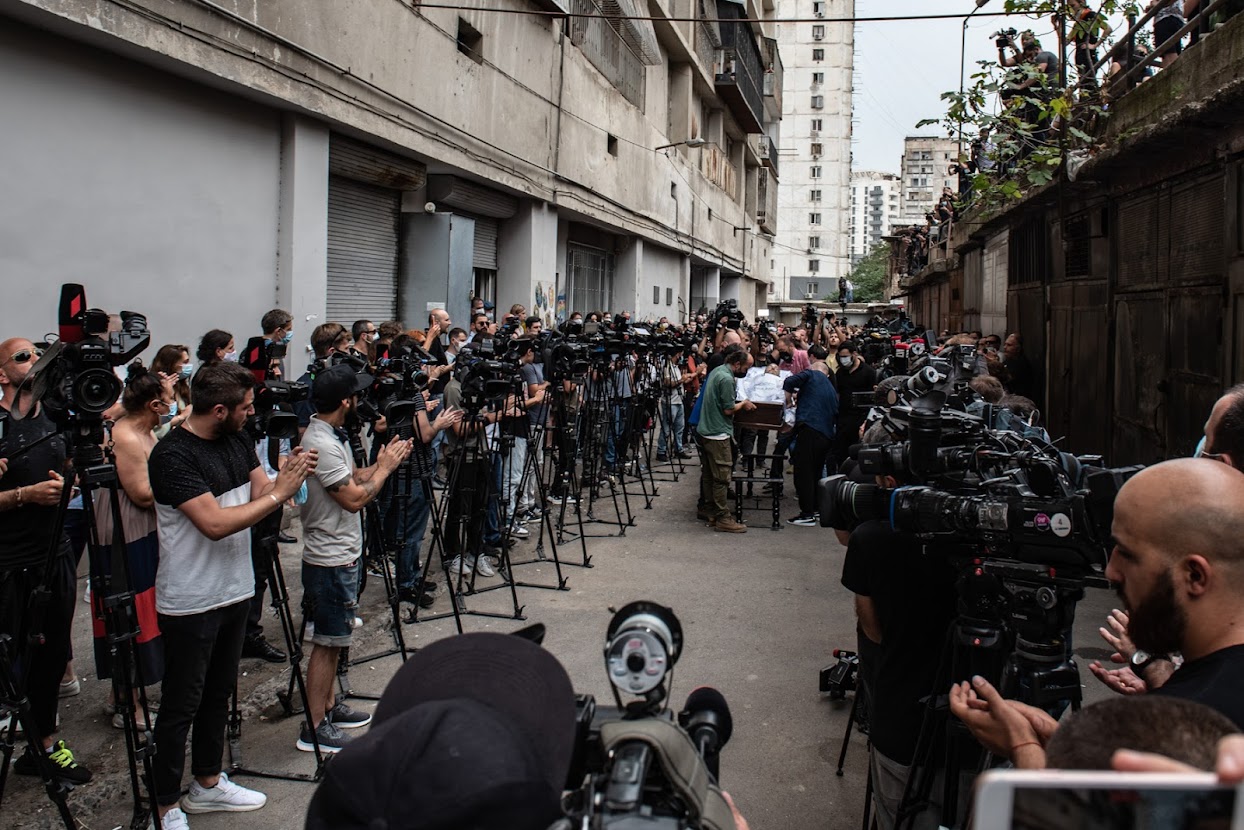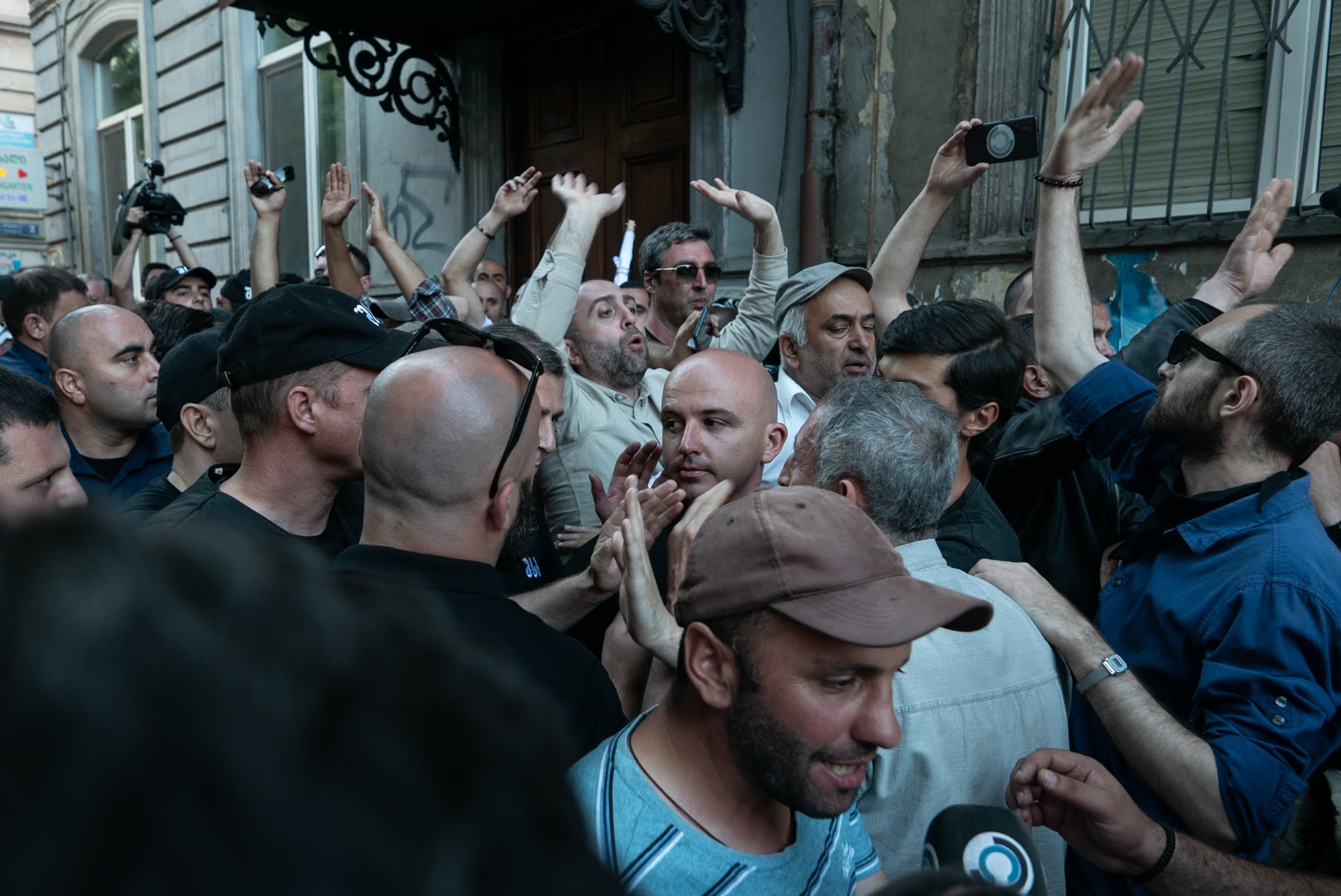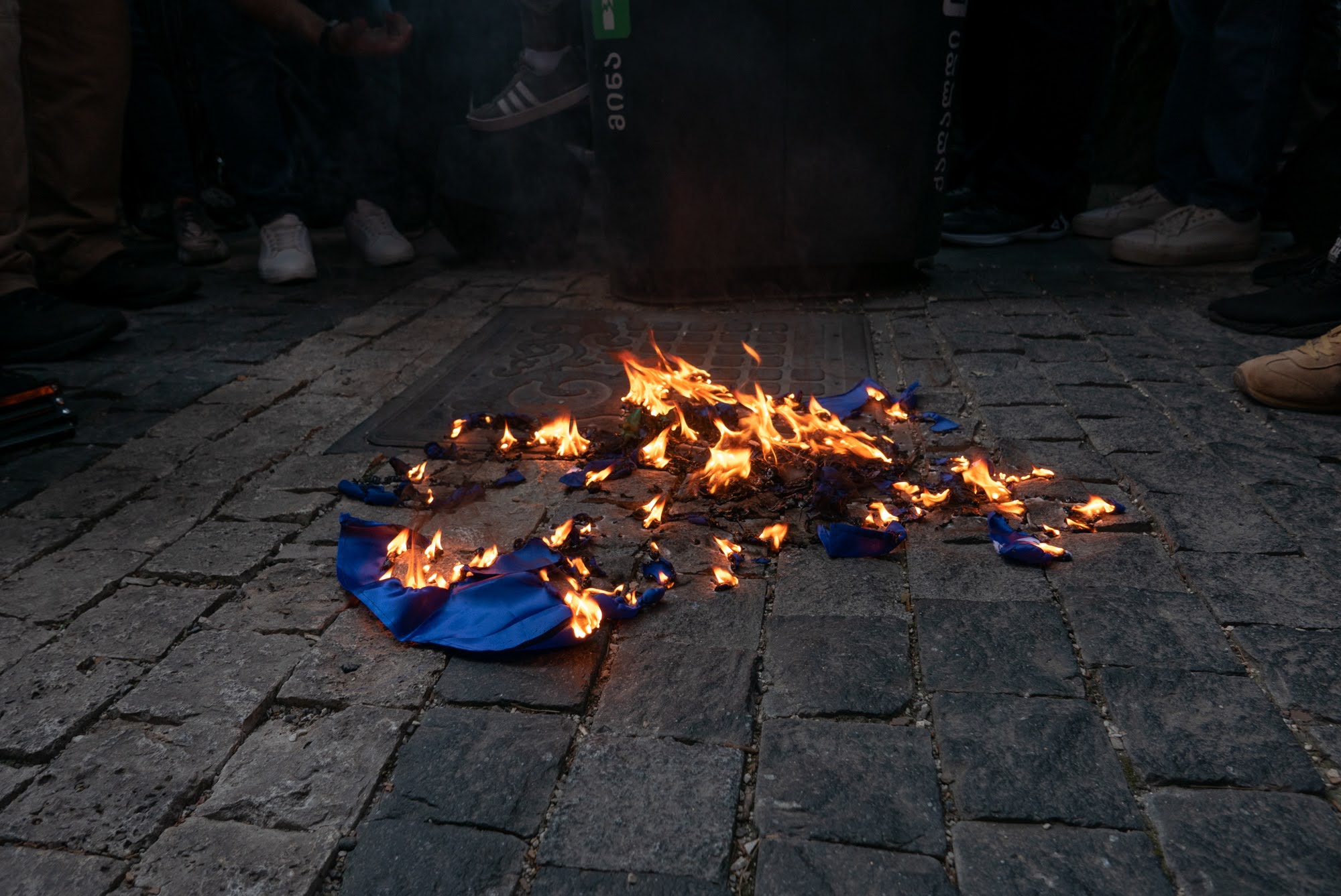
Georgian Public Defender Nino Lomjaria is preparing a lawsuit at the Constitutional Court in an attempt to deregister the political party of the violent far-right group, Alt Info.
Lomjaria announced the move against their party, the Conservative Movement, on 5 July, the anniversary of the homophobic riots organised by Alt Info in Tbilisi.
A day before the anniversary, Tbilisi City Court judge David Mgeliashvili cleared three men who ransacked the offices of queer rights group Tbilisi Pride on 5 July 2021 of comitting a hate motivated crime — ‘persecution on the grounds of intolerance’ — or of committing organised group violence. He fined the three ₾5,000 ($1,700) each.
While the authorities have prosecuted 27 individuals implicated in assaulting journalists and ransacking Tbilisi Pride’s offices, critics have pointed out that the leaders of Alt Info, who organised the violence, have never faced charges.

Moreover, following last summer’s anti-Pride riots, the extremist and openly pro-Russia group Alt Info have been successful in attaining a national broadcasting licence for their namesake TV channel, launching their political party, and opening dozens of regional offices without facing substantial financial scrutiny from the authorities.
Members of Alt Info also never faced any charges for several violent altercations that accompanied the opening of their regional offices nor for threatening activists or attacking TV crews again following last July.
On the night of 1 July, police detained Alt Info’s Zurab Makharadze and other far-right leaders as they attempted to block Tbilisi’s Mtatsminda area, the location of a Pride Festival. Similar to the counter-Pride protests on 1 July last year, days before the riot, the court soon released them.

‘On the anniversary of a grave crime that was committed, the organisers of the crime have not been punished and are engaged in new unlawful activities’, Lomjaria’s statement on Tuesday read.
‘[Their] statements contain signs of calling for the subversion of constitutional order, kindling various forms of hatred, promoting violence […] and the propaganda of war. Therefore, a constitutional lawsuit has been prepared by us that aims at outlawing the said political party’.
The Public Defender also indicated that formally, the lawsuit would be mounted by others.
Georgian President Salome Zurabishvili also appeared to support the initiative to outlaw the Conservative Movement on 5 July.

‘Before we arrive at such a radical decision, everyone must meet their responsibility and find it unacceptable to defend these groups and their promotion of pro-Russian, anti-European propaganda’, Zurabishvili wrote on Facebook on 5 July.
‘Moving swiftly to strengthen the protection of human rights of vulnerable groups, including by bringing the perpetrators and instigators of violence to justice more effectively’ was one of the 12 conditions laid out by the European Union before Georgia’s membership application could be reexamined after they declined to grant the country candidate status.
Tbilisi Pride and others v Georgia
On 5 July, advocacy group the Georgian Democracy Initiative (GDI) announced that the Strasbourgh-based European Court of Human Rights (ECHR) had accepted a case lodged by them on behalf of Tbilisi Pride against Georgia over last July’s riots and the government’s failure to punish the perpetrators.
GDI claimed a violation of the prohibition on ‘torture or inhuman or degrading treatment’, the right of freedom of assembly, and of ‘enjoyment of the rights and freedoms without discrimination’ — Articles 3, 11, and 14 of the European Convention on Human Rights.
5th of July left huge scars on us.. Sense of injustice is very strong as main organisers of #TbilisiPogrom are free. Also unbelievable that Gharibashvili is still a PM, when he green-lighted the unprecedented violence.
We’ll still find our truth, at least in ECHR. #Georgia— Giorgi Tabagari (@Tabagari) July 5, 2022
In December 2021, the ECHR found Georgia responsible of failing to protect queer activists against ‘unprecedented’ mass violence in May 2013.
Like in the 2013 case, GDI intend to prove that statements by the Georgian Government with respect to pro-queer events ‘exacerbated the violence’ against activists.









